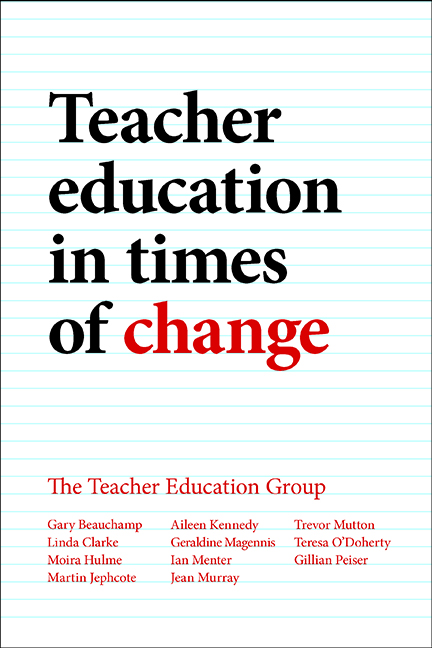Book contents
ten - The place of research in teacher education
Published online by Cambridge University Press: 23 August 2022
Summary
Introduction
This chapter explores (a) how different types of research are fundamental in informing programme content (research in teacher education) and (b) how teacher education research is also useful in influencing programme design and structure (research on teacher education) (Cochran-Smith and Demers, 2008). The discussion of research in teacher education will present a rationale for research-rich teacher preparation and development and then review three different types of research: pedagogical content knowledge, professional enquiry, and innovative modes of integrating theory and practice. The analysis of research on teacher education will pay particular attention to the insights gleaned into how teachers learn, and illustrate how this knowledge has informed the content of teacher preparation courses. In addition to exploring the benefits and value of research in and on teacher education, the chapter will examine some of the associated challenges:
• the tensions between competence-based teacher standards and a wider professional understanding;
• the contested nature of ‘valid’ educational research;
• issues related to teacher educators’ research capacity;
• the difficulties in developing an evidence base in teacher education.
The focus of this book is on teacher education across the UK and the Republic of Ireland. This chapter focuses primarily on the four nations within the UK, although many of the points made have clear relevance to the Republic of Ireland (and see also Chapter Eight, this volume, where the place of research in Irish teacher education is discussed) and indeed internationally. It begins with a brief overview of the policy context for teacher education research in each of the four jurisdictions of the UK. Those issues will then be readdressed in the discussion section with respect to the key points made in the chapter.
Policy context
The analysis by Beauchamp et al (2013) sees the contribution of research to teacher education as having broad institutional acceptance in Scotland, Wales and Northern Ireland, but as currently contested in England. England’s position as an ‘outlier’, however, may be seen as a relatively recent development (Beauchamp et al, 2013), following the election of the coalition government in 2010.
Prior to that election, Hulme et al (2009) noted that all the teacher standards across the jurisdictions of the UK made reference to the fact that ‘accomplished’ teachers would need to draw on research to inform or improve professional practice.
- Type
- Chapter
- Information
- Teacher Education in Times of ChangeResponding to challenges across the UK and Ireland, pp. 161 - 178Publisher: Bristol University PressPrint publication year: 2015

